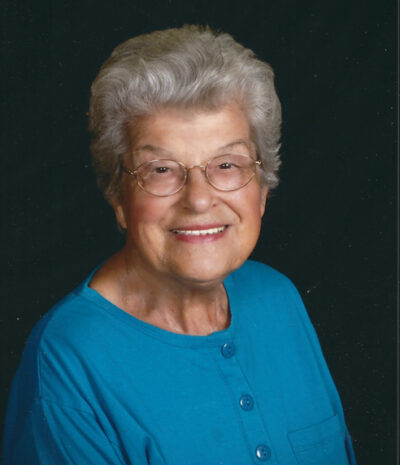My saddest moments as a mother
We followed a nurse as she wheeled Jacob’s incubator into a small room at the hospital’s neo-natal unit. The doctors agreed he could die. Whatever tests they did confirmed our baby’s brain did not function. Only the machines and medicines had kept him going these sixteen days.
I stood beside the nurse as she lifted Jacob onto a padded table. He still had his breathing tube, but she had disconnected the IV drip and wires used to monitor his tiny body. She let me dress him for the first and last time. Hank handed me the paper bag we had already brought once to the hospital, and he returned to his chair, stone-faced, but his eyes gave away his misery. His hand rested on the seat of the empty chair beside his.
I removed the neat pile of clothes Jacob’s older brother wore when he newborn. I slipped the cloth diaper, folded into a small square, beneath his bottom, pinning the sides with pins with plastic ducks near the fasteners. The nurse held the nightshirt, the kind that crosses in the front, then snapped. The soft white cloth hung on him, as did the flannel nightgown I sewed. That baby was nine pounds when he was born and didn’t wear it very long. Jacob weighed less than two because he was born nearly three months too early.
The nurse lifted Jacob as I spread a flannel blanket and the quilt I had made, laying him in its center, so I could pull the corners into a tight package. I always bundled my babies this way, sometimes in several layers, old-fashioned perhaps but I thought it made them feel secure. After being contained inside me for so long, I offered them this transition.
For Jacob, this is the way he would be buried, wrapped in these soft, white clothes. He wouldn’t know or feel them. But these things mattered.
I told the nurse about the bag that would go with him to the funeral home. It contained toys our other children chose to put in his casket. I wept when they brought me the toys, the smallest ones they had: a stuffed rabbit, a matchbox car, a chew toy, and a rattle.
Jacob was ready, and I sat beside Hank with our backs to the window and doorless entry to the rest of the ward. The nurse removed his breathing tube. I expected a small gasp, but Jacob did not make a sound. She placed him in my arms, and I held him as I had done during my visits here. I looked into his small, still face as the nurse explained that even without the respirator his heart would continue beating. She would come back to check.
The nurse wanted us to know our son could not have gone on, that we had not made a mistake letting him go. “It’s not because his heart is strong,” she said. “It’s from the medicine. I just wanted you to know that.”
I held him and then when Hank was ready, he did. We took turns.
Jacob’s heart beat two hours more.
This was the first time I witnessed death firsthand. I only knew three blood relatives who died in their old age. I was a child then, and after the news was told, I didn’t know how to feel, except for my grandmother, who I saw every day and would miss. I thought it would make my parents sadder if I was sad.
Now Hank and I waited with our infant son as he died. We cried openly. We talked mother and father talk, kissed his face, and cried and sang lullabies. We talked about his brothers and sisters. We said nothing, waiting, wondering how long his heart would last.
The nurse returned several times, bending over us as she listened to his heart through a stethoscope.
She shook head.
“Not yet,” she said.
Sounds from the other room distracted me. A baby in the neo-natal unite was having a seizure. People were tending to him. No one came into our room except the nurse. They must have all known. This must be the room where parents wait for their infants to die.
I felt Jacob’s body lose its warmth. The skin of his face darkened. The nurse checked again, but his heart beat still.
We kept going, finding new things to say, things that we hope would comfort his spirit. I felt his body grow colder. The blankets or the heat from our bodies did nothing to warm him. His skin was violet. Our baby did not look as if he was sleeping or at peace. He wore the same expression he had since he was born. Empty.
Finally, the nurse confirmed what we already knew. Jacob was dead. She took him in her arms, and we left the room, crying hard, holding onto each other. That was April 23. Jacob lived sixteen days.
Two days later, we buried Jacob at the North Cemetery on Cold Street in Worthington. We invited no one. It would be just our five children and us. The late morning sun shone through the branches, bare still as Hank drove to the cemetery. Daffodils rose through the dried bleached leaves near the headstones.
The man from the funeral home arrived in a boxy tan station wagon. The director, the father-in-law of the building contractor who Hank worked for, said he would handle the funeral at no charge. The hospital would have taken care of his body, but we said no. It was not enough.
I watched the man from the funeral home walked around the rear of the station wagon. He opened the tailgate. A small, white box was in the back. With its lid and embossed cardboard exterior, it looked more like a gift box than a baby’s coffin.
“Where are the flowers?” I asked.
“Flowers? I’m sorry, ma’am, I don’t have flowers.”
“I ordered a blanket of flowers.”
He apologized again. It was not his fault. I should have asked about it when I called the florist. I felt tears start again. The man’s face was red.
“It’s OK. We’ll get it later,” Hank said.
It wasn’t okay, but there was nothing we could do. I nodded, and Hank bent to pull the coffin toward him. He cradled it in his arms. Our oldest daughter burst into tears. Hank gave me a stricken look. The other children were silent. They had never experienced death, except the one of a pet. They were sad about their brother because we were sad, but the baby inside the box their father carried was some sad mystery.
But our daughter was fourteen. She helped me with the other babies. She was there when two were born. She understood.
It was time to be brave. I lifted the youngest onto my hip.
“Let’s all hold hands,” I whispered to the others, and we followed Hank in a crooked line over the dry grass.
The man from the funeral home stayed behind.
Our son’s grave was in the cemetery’s newest part, up from the tilting gray slabs for Worthington’s earliest settlers, their names and dates worn away by the elements, and the middle where the relatives of the town’s natives now rested.
The day before, Hank and the two older boys dug his grave. It’s not the custom in our town, but the cemetery commissioner agreed when Hank asked. Work makes him feel better. He couldn’t do anything in the hospital to help our son. But he could wield a shovel to carve a box-like hole large and deep enough for a baby’s coffin from the rocky, clay soil. The three of them were gone a few hours. I stayed home. I could not watch.
Hank placed Jacob’s coffin on the ground. The children clustered close to me, the tops of their heads shining in the sun, as their father pulled a paper from his jacket pocket. He read the words he wrote the day before about Jacob and what he meant to us.
I listened, stunned by my sadness and the simple but profound words of my husband. Hank ended his speech. Birds, moved by their spring homecoming, called from the trees. He bowed his head. We waited. Then he stooped to set the box inside the hole. He placed the paper on its lid. He stood. Our sad eyes met.
Hank turned to get the shovel he had left near the pile of dirt. We watched as he filled the grave, the dirt and pebbles drumming lightly over the white coffin, until a soft mound rose. Then we walked downhill toward the car. The man from the funeral home came to wish us well.



